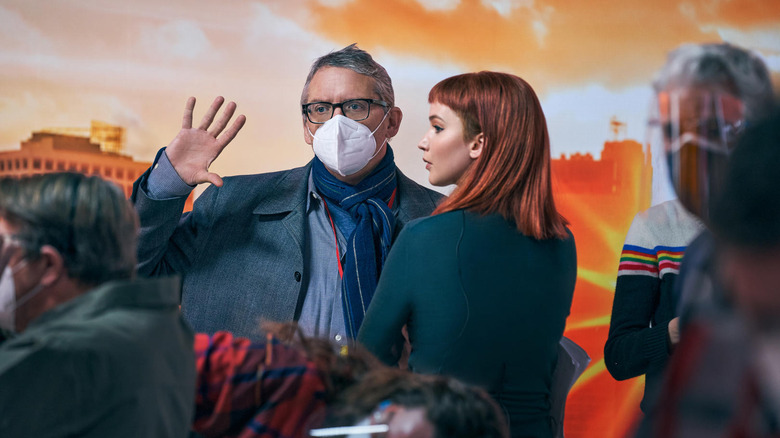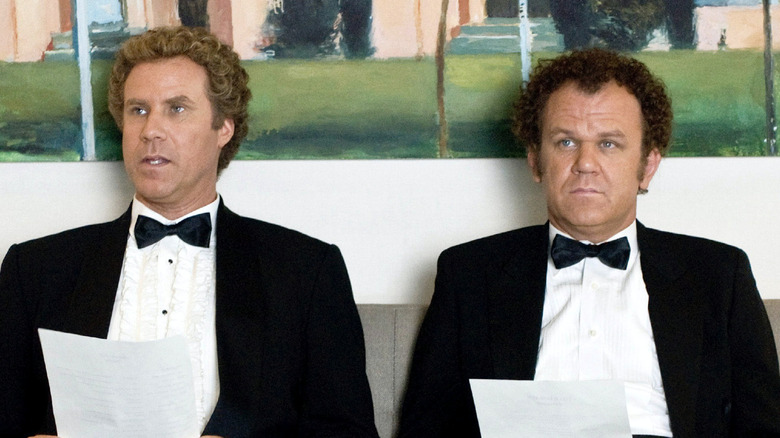Adam McKay Reveals Why He Moved Away From Directing Comedy
From the time they both broke into "Saturday Night Live" in 1995, writer/director Adam McKay and his writer/star cohort Will Ferrell had one of those Kurt and Goldie-type partnerships that endured over nearly 25 years, five major movies, and four presidencies. Sadly the "Anchorman" pair began to drift apart once McKay's career shifted into less comedic, more dramatic territory like "The Big Short," "Vice," and his latest "Don't Look Up," leading to their split in 2019.
But it wasn't just the gradual estrangement from Ferrell that led to McKay abandoning the comedy genre he mined so successfully in films like "The Other Guys" and "Step Brothers." According to a new interview in The Hollywood Reporter, McKay says it was a more overall cultural erosion that made his brand of broad satires feel suddenly out-of-touch:
"More and more, I started realizing the world was shifting away from the golden age of comedy we had from the late 1990s through the 2000s. The themes of those comedies were about sort of empty-suit white guys, and that's what Will and I riffed on. That's what really made us laugh. But then you started to see the ravages of that culture, and it wasn't so funny anymore. Big, powerful tectonic stuff started to happen: the financial collapse, the rise of the extreme right wing, the climate crisis and the soaring income inequality. It became almost bizarre to do those old-style comedies and didn't make sense at that point. I was just very excited to go at things from a bunch of different directions, and, God bless Will Ferrell, he just didn't have that same appetite that I had. Will's the greatest, most laid-back guy. And he's just like, 'Well, I like producing a couple things, but I don't know if I want to do 20 things.'"
All Bro With Nothin' to Show
As if the actual George W. Bush quote in the opening of 2008's "Step Brothers" wasn't enough of a tip-off, that now-classic comedy in which Ferrell and John C. Reilly play two entitled middle-aged dolts was (while extremely funny) very much a broadside against the burgeoning "bro" culture that eventually devolved into the toxic incel, QAnon and men's rights movement folks who became the target audience of right-wing American politicians. Looking back on "Step Brothers" now might seem a bit like watching Charlie Chaplin's 1940 comedy "The Great Dictator" anytime after 1946 when the full weight of WWII atrocities muted its intended humor.
So it's understandable that McKay sought a sea change in his output, all around the same time that his one-time producing partner Judd Apatow recognized that the protagonists in films like "Funny People" and "This is 40" were becoming un-relatable, and thus shifted to telling younger comedians' (Amy Schumer, Pete Davidson) stories. Every artist, even those that dwell in that most populist of genres — the comedy — have the right to reinvent themselves so their output doesn't become calcified. If you think that McKay's newer, more political work has become problematically polemic you might be right, but someone of his talent deserves the chance to branch out rather than just grinding out a third, fourth, and fifth "Anchorman" movie.

